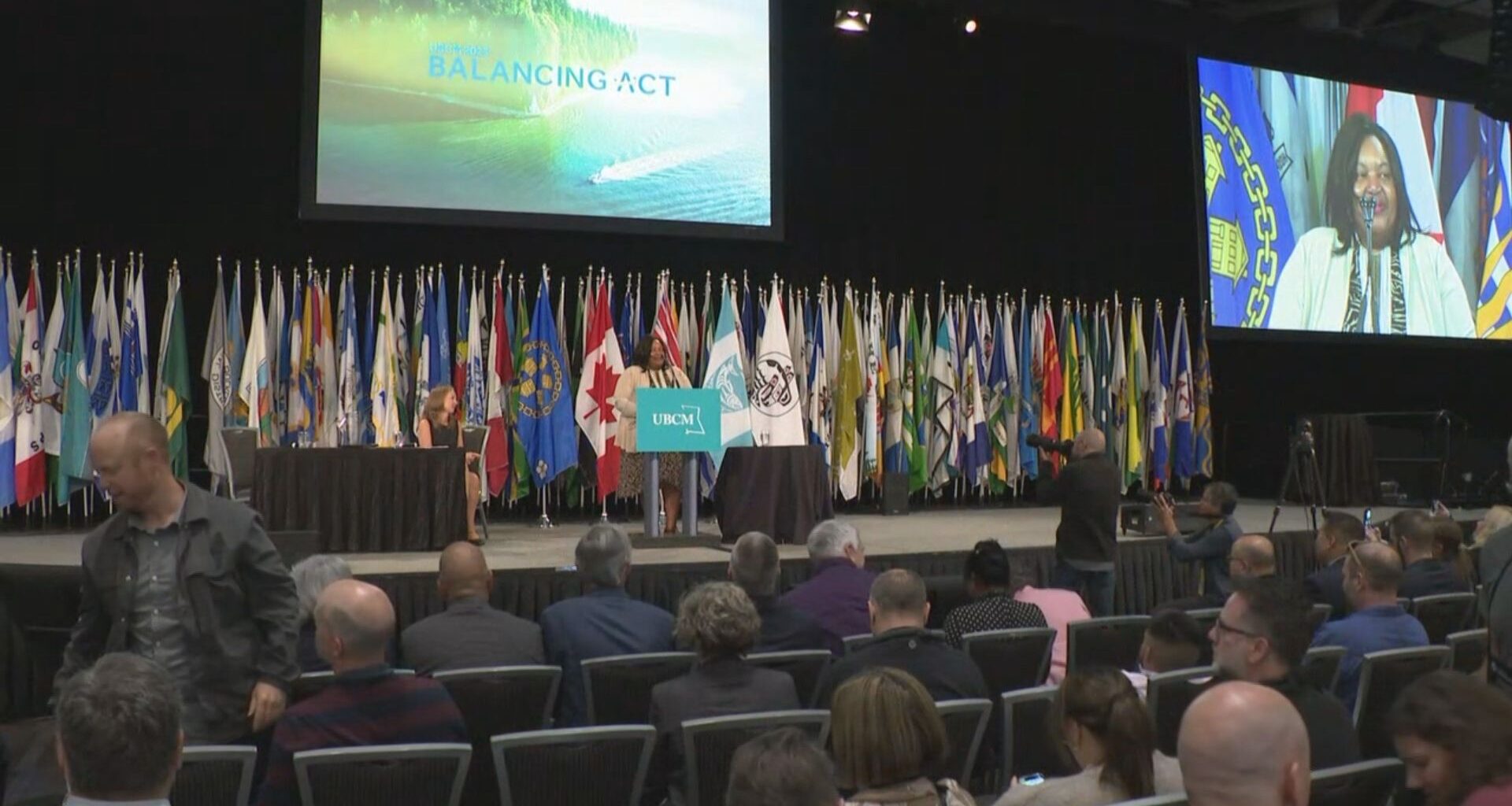As the Union of BC Municipalities (UBCM) gets underway, its agenda is intensely focused on public disorder and addressing the consequences on local communities.
Jess Ketchum, co-founder of the Save Our Streets Coalition (SOS), tells 1130 NewsRadio he feels the problem has been downloaded onto local city halls across the province.
“Many of them deal with crime, violence and public disorder that is prevalent in so many communities in B.C. This conference is going to highlight the fact that these issues are in every community throughout British Columbia. I can’t remember a time when one issue has brought so much discussion forward at UBCM,” said Ketchum.
Resolutions on the union’s roster include:
Regional Approach to Homelessness
Continue Funding Programs for Local Poverty Reduction Initiatives
Strategy for Rehabilitation, Homelessness and Public Safety
Housing Requires Urgent Action
Addressing Repeat Offenders
Victim Services Program Funding
Health and Wellbeing of BC’s Public Safety Personnel
Homeless Encampments within City Limits on Provincial Land
Supportive Housing Targets and Treatment
Creation of Regional Crime Prevention Officer Positions for Rural BC
Release of Prolific Offenders in Communities
Sharing Fentanyl Precursors Information with Law Enforcement
Regional Approach to Homelessness
Catch and Release of Repeat Offenders
He explains that many, if not all, the issues fall under the umbrella of health care, justice and housing — three portfolios that belong to the provincial and federal government. He’s calling on both to step up.
“I think the province and the federal government have dropped the ball when it comes to public safety over a long period of time.”
Ketchum offers increased funding as part of the solution, and understands the provincial coffers are bare after Victoria posted a $11.6 billion deficit last week, one that’s expected to worsen next year and balloon to $12.6 billion.
“I think the province and the federal government have dropped the ball when it comes to public safety over a long period of time.”
SOS says, more than ever, addiction, mental health and prevention need to be a priority.
“We need to have easy access to detox treatment and long-term recovery. People have to be assessed properly when, well, many of them who have committed crimes to support their addictions, these people need to be assessed to determine whether they are suffering from an addiction and to go into the health-care system, and they should be able to access that.”
Ketchum says the slow wheels of the justice system are also part of the problem.
“Our arrest-to-charge rate in British Columbia is the lowest in Canada, and it’s dropped 40 per cent in the last decade. One of the reasons for that is the lack of prosecutors. What that means is cases don’t get heard. What that means is police are more hesitant about taking charges forward if they feel like they’re not going to be acted on. What it means is the public loses faith.”
He says, regardless of whether posted crime statistics are up or down, people don’t feel safe.
“These are people who fear for their own safety or that of their families in their own communities. We’ve had enough. We can’t let this go any further. People’s lives are at risk.”
In addition to money, SOS says municipalities need a plan for continued care for those dealing with mental health and addiction, a faster-moving justice system, and he’s calling for more police officers, especially in so-called crime hot spots.
The UBCM is being held in Victoria until Friday.

